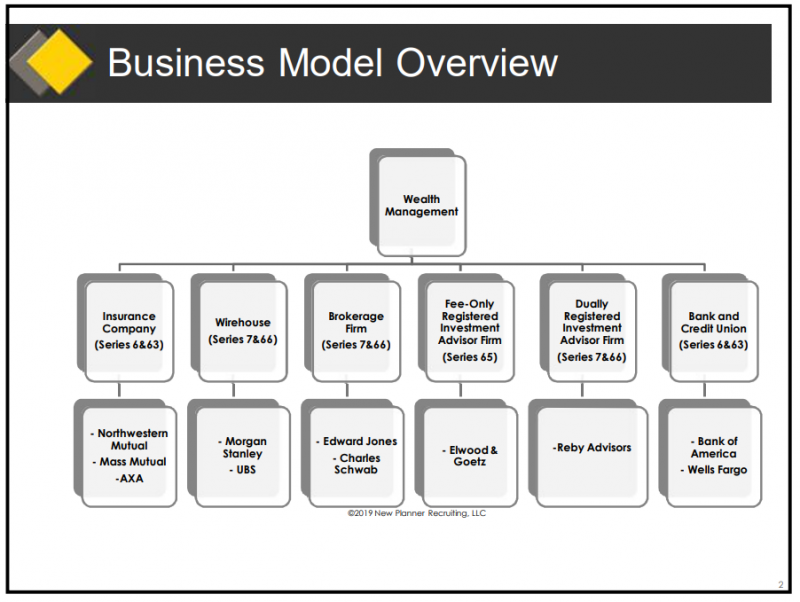“Financial Planning Articles” is a collection of articles and research that I’ve been reading regarding financial planning, industry trends, career development, and more.
***
This edition begins with two articles on the topic of advisor value. The first, from Sarah Max with Barron’s, provides a recap of industry studies showing the significantly positive impact advisors continue to have on client finances. Michael Kitces and behavioral finance specialist Carl Richards continue the topic in their inaugural collaboration (of what may turn into a series) discussing the multiple sources of advisor value (while teasing how to frame value with clients). We then turn to a financial planning practice article on the growing trend for advisors to leverage firm growth (or simply free up their time) by leaning on virtual assistants (and in some cases, by leaning on several specialized assistants to provide additional firm value). We wrap up with an article that looks into the effects of student loans on young adult home ownership.
I hope you enjoy.
What I’m Reading:
Why It Still Makes Sense To Pay A Financial Advisor (Sarah Max, Barron’s)
“Paying out 1% of your assets under management–the industry average for professional advice–might seem like a high price for handholding, but studies suggest that, for many people, there is a noticeable return on investment. Consider this: In a recent study of K-12 teachers by AXA Equitable Life, those educators who worked with advisors had nearly double the retirement assets in their 403(b) plans than those who chose to go it alone. While some of this gap might be explained by better returns in their portfolios, the biggest drivers seemed to be behavioral. On average, teachers who worked with a pro contributed 49% more to their plans annually and increased their contributions 24% more frequently than peers who flew solo.
Now, studies about the impact of advisors don’t always address the question of cause and effect. It stands to reason that people who work with advisors have larger nest eggs. The fact that they hired an advisor suggests they are motivated to save and they have the resources to do so.What’s notable about this study–which spanned 20 different financial institutions, not just AXA–is that it controls for some of that causality. There were no statistically significant differences between the advisor and non-advisor groups with regard to age, gender and income. Moreover, most of the teachers who connected with advisors did so through onsite services provided by retirement-plan providers. The upshot, says Steve Scanlon, head of group retirement at AXA Equitable Life, is that individuals in all income brackets could benefit from some professional advice.”
Kitces and Carl Talk About How To Value The Value Of Financial Planning (Michael Kitces, Kitces.com)
“Fortunately, both Morningstar, Vanguard, and Envestnet have done some research to try and quantify an answer to this very question. Their studies suggest that, even when we ignore any potential excess investment return, the advice that advisors provide around the dollars that they are managing can amount to an additional 1.5-3.0% over what a client would have likely gotten had they “done it themselves.” But, outside of “helping clients avoid big mistakes” by re-allocating their portfolios or talking them off the proverbial “ledge” when volatility ticks up, there’s arguably another aspect to helping clients that transcends the “quantifiable” aspect of the profession. Because most clients don’t have anywhere else they can go and feel safe talking about this topic of money, that is so important yet remains a taboo topic of discussion, and for many carries an enormous amount of baggage. And those hurdles only expand geometrically when it’s a couple that’s sitting across the desk.
…
Alternatively, perhaps instead of trying to put a dollar value on the advice we provide as advisors at all, we might just consider framing it in terms of the real-world outcomes for clients. For instance, what if we as advisors simply said to a couple having stressful arguments about money that, “We help couples have better conversations about money, so they’re not as awkward”? And then let them figure out if it’s valuable enough to them to pay for it? Because, if an advisor can help reduce marital stress and reduce the number of marriages that end out in divorce because of money issues… then clients might consider that a whole lot more valuable that we might have ever imagined anyway!”
The Top 5 Tasks Advisors Can Outsource To Virtual Assistants (Ben Brown, Morningstar.com)
“Regardless of business size, hiring staff is likely the first solution considered when an advisory firm is facing growth hurdles, yet there may not be room in the budget for a full or part-time employee. Further, and at least in the early stages of a growth hurdle, while an advisor may feel stressed by their workload and feel a need to delegate tasks, there may not even be enough work to justify hiring at all.Thankfully, a virtual assistant can help with key administrative tasks that free up an advisor to spend more time with clients and on the things they do best, without the added complexities of hiring staff or the cost associated with hiring a full-time employee for what may not be a full-time job. In an age where it’s possible to work from anywhere with an Internet connection, a virtual assistant can help solo practitioners break through growth barriers, or help larger firms more easily achieve staff augmentation for specialized tasks without having to be in the same geographic area as the advisor or firm.“
Student Loan Debt Is Keeping Young People From Buying Homes, Fed Study Finds (Jeff Cox, CNBC.com)
“Home ownership among all Americans for the study period declined 4 percentage points, from a peak of 69 percent in 2005 to a trough of 65 percent in 2014. However, the decline was much more pronounced among those in the 24-to-32 group, which saw a plunge from 45 percent to 36 percent. The paper did not identify the other causes for the decline but indicated that about 20 percent could be attributed to the student loan burden.”
***





